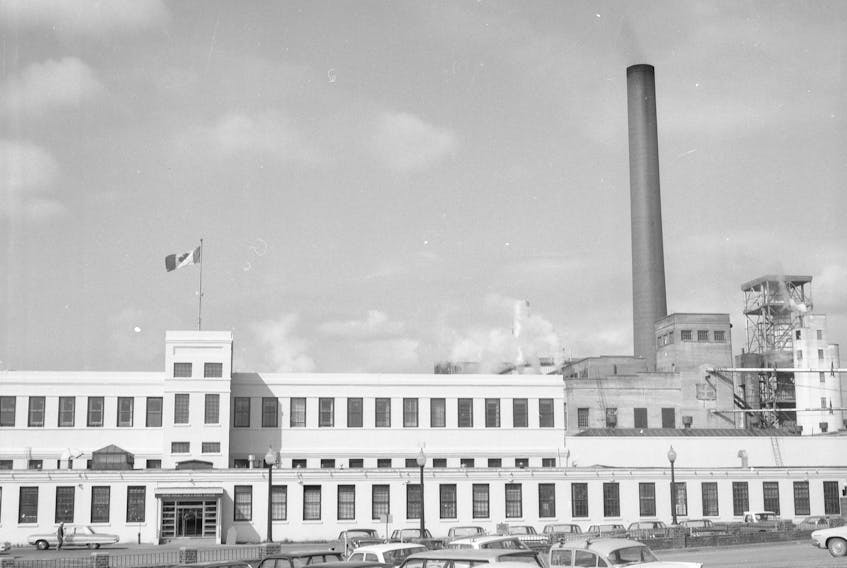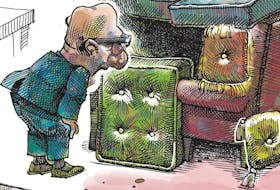One hundred and ten years since it opened, and just 10 since it closed.
That’s the history of the Grand Falls paper mill in a nutshell.
Here’s a small bit more: the mill was launched in 1909 by the Anglo-Newfoundland Development Company (AND), built where it was specifically for the resources that were available at the site: the Exploits River for water, power and to transport logs downstream, trees to cut, and a port at Botwood to handle deep-water shipping of the newsprint product to customers in the U.S., Britain and beyond.
“Along with the power plant, the mill, the railway and the shipping facilities at Botwood, the AND Company built a well-planned and laid out town for its employees,” resident and former Advertiser columnist Andrew Barker wrote in his 2010 non-fiction piece “Lunch Baskets.”
It’s strange to think about how much is now gone: the mill whistle, the stack, the physical mill itself and its good-paying jobs.
“The rotten egg like smell of sulphur emitting periodically from the mill was our inland industrial offal. Townspeople took it in stride, but visitors were taken aback by the ghastly smell. Along with that smell, and others, were the sounds of loud hissing steam, the steady roar of machinery coming from the mill complex, and the rumble and tumble of logs as they were stripped naked of their bark in the rolling drumbarkers.”
Before 1961, according to Heritage Newfoundland and Labrador, “Families lived in houses provided by the company and people were not able to live in the town unless they worked in the mill or had permission from the company. … Those who did not work for the company, or worked for the company outside of the mill, such as loggers, who provided the raw material to be processed, were not only prohibited from living in the town but also excluded from socializing with mill workers.”
Through a succession of owners — AND, the Price Corporation, Abitibi-Price, Abitibi-Bowater — the mill took harvested trees and turned out newsprint. And the good fortunes of that industry buoyed its workers, the town and the province.
But the last 10 years have shown that modern Grand Falls-Windsor is a lot more than that as well.
The mill certainly built Grand Falls-Windsor, and for decades, defined it: it was a mill town, first and foremost, with the mill at its core. The town’s fortunes rose and fell on the price of, and demand for, newsprint.
But that’s only a fraction of the 100 years of news from the mill, everything from layoffs during recessions to pollution issues to the 1959 International Workers of America strike, during which Const. William Moss was struck and killed with a birch log.
It’s strange to think about how much is now gone: the mill whistle, the stack, the physical mill itself and its good-paying jobs.
And when it closed, there were those who felt the town just might follow.
Grand Falls once was the mill, and just the mill.
But the last 10 years have shown that modern Grand Falls-Windsor is a lot more than that as well.
RELATED









